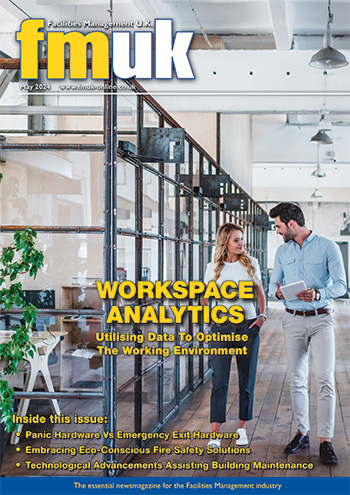New Survey From Orega Reveals Vote For Flex As Over 2/3 Of Businesses Say They Want The Flexibility To Upsize And Downsize As Office Needs Change With Move To Hybrid Working

Over one third of businesses (rising to 42% in London) say they plan to reduce space requirements – with 59% of those businesses saying they would consider some form of flex space
A new survey launched today by flex space operator, Orega reveals that over two thirds of businesses want the flexibility to change their office requirements – either through upsizing or downsizing and this is impacting on their office property decisions.
The independent survey* of 500 business leaders and 2,000 UK office workers also confirms the massive shift in working patterns since the pandemic with 58% of employees saying they are embracing a hybrid way of working, most commonly working three days in the office and two remotely.
Who Is Moving Space ?
The new means of working is having a dramatic impact on office requirements with over a third, (37%) of businesses (and 42% of businesses in London) saying they plan to reduce their space requirements, particularly high for businesses in Banking, Finance, and Insurance (51%), Energy & Water (50%) and Transport & Communications (48%).
And although only 12% of businesses plan to cut office space by more than a half, the majority (53%) plan to reduce space by a sizeable 20 - 50% with only 10% of businesses surveyed planned to look for larger offices.
The survey also revealed a growing interest in using a hub and spoke model of working – in the main office most of the time and then using a local serviced office near to the employee’s home.
Businesses To Take Action When Lease Ends
And only a third (34%) of businesses said they would retain the office as is when their lease ends – with a further 21% saying they would keep their office space and allow employees to also work in flexible workplaces near home.
The most dramatic change is in London where only 22% of businesses said they would retain the office as is when their lease ends – and 24% said they would keep their office space and allow employees to also work in flexible workplaces near home.
A New Way Of Thinking – The Flexible Future
 Many of the businesses looking to reduce their office space are looking to switch from long leases to flex.
Many of the businesses looking to reduce their office space are looking to switch from long leases to flex.
Well over half (55%) of business leaders said the pandemic and the move to new ways of working have led them to rethink existing leasing models, (a significant increase to 49% in 2021) and this is particularly high in London, with 60% of businesses rethinking how they lease their properties.
In terms of industry groups, those most actively rethinking their traditional ways of leasing are those businesses in transport and communications, (75%), banking, finance and insurance (59%) and manufacturing (58%).
Many firms do not know what they will need in the long term so having the freedom to upsize and downsize is crucial, which is why having some flex space has become a more attractive proposition.
A substantial 59% of businesses surveyed said they would consider some form of serviced office/ flex space. This was higher in London and the South whereby 61% and 59% respectfully of business leaders said they would consider such offices.
42% of office workers also stated they would like to work in the office and near home in flex or serviced office space rather than working from home, a figure that rose to 45% among men and 44% among the 16-30 aged group.
A Flight To ESG, Quality, Privacy And A Quiet Place To Work
 There also appears to be a flight to quality in terms of office space. Employees revealed the most important thing about their office are environmental issues such as fresh clean air (73%,) suitable and controllable temperature (72%) and direct access to natural light (71%) – but the ability to develop relationships with colleagues, (73%), a quiet space to concentrate (69%) and privacy (62%) scored highly too.
There also appears to be a flight to quality in terms of office space. Employees revealed the most important thing about their office are environmental issues such as fresh clean air (73%,) suitable and controllable temperature (72%) and direct access to natural light (71%) – but the ability to develop relationships with colleagues, (73%), a quiet space to concentrate (69%) and privacy (62%) scored highly too.
Down the bottom of the list were facilities such as barista-style coffee services (29%), gyms (25%) and connections to other businesses in the same building. Indeed 74% of respondents said this was not important (voted 1-6).
Over 70% of the 16–34-year-olds surveyed said their priorities for the office were to provide quiet spaces to concentrate (70%), fresh clean air (73%), have controllable temperature (72%) and direct access to natural light (71%). 73% also mentioned the benefit of access to colleagues. Given the difficulties many young people faced as they tried to work from home in unsuitable accommodation, a good warm office environment certainly has its attractions.
The survey also revealed:
Both cost and the wellbeing of staff remain high on the agenda for business leaders considering their property requirements – with 87% of business leaders said that the cost of office space is the key driver in making their property decisions and wellbeing of staff (at 85%) coming a close second. These indicate that concerns about looking after and retaining staff are still high priorities on the agenda for business leaders as we emerge post pandemic.
How Important Are The Following Considerations When Making Decisions About Your Office?

Hybrid Ways Of Working Now Supported By Employers – Return To Five Days In The Office Unlikely
The survey confirms the massive shift in working patterns with 58% of employees saying they are embracing a hybrid way of working, most commonly working three days in the office and two days remotely compared to pre pandemic when hybrid working which was practiced by 22% of workers with 73% of workers coming into the office 5 days a week and 5% of staff working from home. Now only 27% of workers come into the office every day with 15% working full time from home.
This new trend has found favour with employees – with 40% of those surveyed saying new methods of working have helped their mental health.
But also most employers also seem to be happy with this trend. From our survey of 500 business leaders, 56% said they prefer their staff to do a mixture of working from home and in the office, a significant increase from 48% in 2021. 44% also said they felt remote working during the pandemic had had no impact on productivity.
Employers therefore seem to have become more confident about their employees moving to hybrid working – particularly in London where 64% of business leaders supported hybrid working, perhaps due to the associated extra travel costs to the capital and to keep staff happy.
What Businesses Want From Their Office
New working trends have also focused businesses on what they need from their offices. 83% of businesses said they wanted staff to attend the office for the benefits of collaboration and communication, 78% for focus and productivity and 75% to stimulate creativity and inspiration. Employees seem to feel similarly with 57% of employees giving the office a high score as a social hub.
The office is by no means dead – it’s just changing and being used for other purposes.
 Commenting on the survey results, Zach Douglas, CEO of Orega said, “Our survey has revealed the massive change that our office environment has undergone through and post the pandemic as hybrid working appears to be here to stay and most employers are accepting of this. Given overall hybrid working does not appear to be negatively impacting productivity in most industries but is also providing a positive impact on mental health and is preferred by most employees, we are unlikely to see a return to the full 5 days a week office working.
Commenting on the survey results, Zach Douglas, CEO of Orega said, “Our survey has revealed the massive change that our office environment has undergone through and post the pandemic as hybrid working appears to be here to stay and most employers are accepting of this. Given overall hybrid working does not appear to be negatively impacting productivity in most industries but is also providing a positive impact on mental health and is preferred by most employees, we are unlikely to see a return to the full 5 days a week office working.
“We also see that the office still has an essential role to play in the world of work particularly as a place to collaborate and communicate. But employees of all age groups are also looking for privacy and a quiet place to work – which appears to be far more important to them than gyms and mixing with people from other businesses.
“And thirdly, flexibility is becoming key. Over half of business leaders said the pandemic has led them to rethink about existing leasing models, and when their leases are up one third of businesses are looking to reduce their office space. Many will keep existing space (34%) but another (21% ) said whilst they would keep their office space, they will allow employees to also work in flexible workplaces near home. More businesses than before are looking at flexible leases, serviced office and hub and spoke space, particularly those office occupiers in Central London.
“The change is dramatic. In many ways the pandemic acted as a catalyst. Employees expect more and more from the offices in which they work – and so do companies if they are to keep their workers happy. The UK market is not giving up on the office but to survive it must certainly adapt to the call for flexibility, high quality, ESG – and provide a quiet place to work.”
To access the full survey, please click on the link https://www.orega.com/future-of-the-office-report
*The survey was carried out independently by survey company Survation who surveyed 2000 UK office workers and 500 business leaders in Summer 2022.
























































